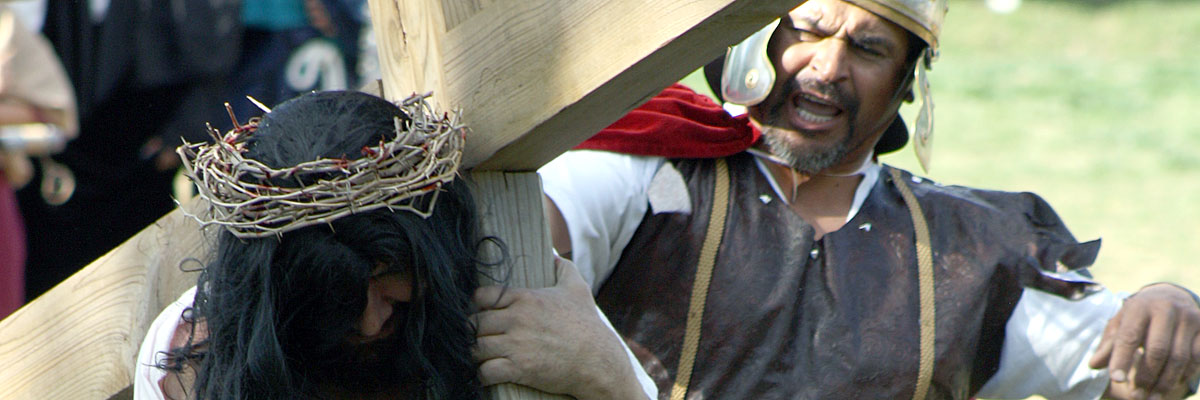Official Website of the
Catholic Diocese of Little Rock
Fourth Sunday of Easter, Year B
Published: April 25, 2021
Bishop Anthony B. Taylor preached the following homily at Immaculate Heart of Mary Church in North Little Rock (Marche) on Sunday, April 25, 2021.

Bishop Taylor
One of the most powerful experiences of my life was to work the cause of canonization of Blessed Stanley Rother, a priest who was martyred at Santiago Atitlán, Guatemala, a mission that the Catholics of Oklahoma had adopted in 1963 and at which he had been serving since 1968. His story is long, but what it can all be boiled down to is his conviction that the shepherd cannot run when the wolf threatens his flock.
And the flock is everyone entrusted to our care, not just the good sheep, but rather all the sheep — including those who stray, especially those who stray. By 1975 all the other priests had left the mission, but Father Rother stayed — out of love for the priesthood and out of love for the people God had entrusted to his care.
He knew that the local bishop had no one to take his place and that his departure would leave 40,000 desperately poor people without a shepherd. When in 1976 a devastating earthquake hit, he risked his life repeatedly to rescue people who lived on steep and still unstable hillsides, and he searched for them in homes that had been flattened by the quake and subsequent landslides.
Today is Good Shepherd Sunday, a day for us to pray for our shepherds — the pope, me your bishop, your pastor and all our priests and deacons worldwide — and to pray that the Lord will raise up from our midst many more good shepherds to care for his flock going forward.
And four years later, when the decades-long Guatemalan civil war came to his area and the army began their clandestine "special operations" there, he didn't stay only to bury those who were murdered by the army and their paramilitary death squads. He also remained to protect his flock as best he could and bring them hope —-- again risking his life, especially when his parishioners began to "disappear."
Many missionaries abandoned Guatemala at this time and even Father Rother traveled back to Oklahoma after his name appeared on a death list, in part to bring his even more vulnerable Guatemalan associate to safety in the United States. But he was deeply troubled the entire time he was away, knowing the terror being inflicted on his parish by the army.
He kept saying: "The shepherd cannot run when the wolf threatens the flock." So, he returned to Guatemala at the beginning of Holy Week in 1981, just a little over 40 years ago today. Three months later, on July 28, a paramilitary death squad entered the rectory and at around 1 a.m. this good shepherd of the 20th century "down his life for his sheep."
And he did so modeling himself on Jesus, who — as we see in today's Gospel — is the Good Shepherd par excellence, and we are the sheep for whom he laid down his life. Even more so than Father Rother, Jesus could have kept his mouth shut and avoided the cross, but then we would not have been saved.
Tertullian says: "the blood of the martyrs is the seed of the faith," a saying which has been verified repeatedly over the course of the last 2,000 years. One man — Jesus — laid down his life and his blood is the seed from which today's 2 billion Christians have sprung (about half of whom are Catholic).
One man — Father Rother — laid down his life and his blood is the seed from which have sprung 10 ordinations to the priesthood from that parish in the last 40 years — a parish founded in 1543 that in the previous 400 years — due initially to Spanish colonial policy — had not produced a single vocation.
Today is Good Shepherd Sunday, a day for us to pray for our shepherds — the pope, me your bishop, your pastor and all our priests and deacons worldwide — and to pray that the Lord will raise up from our midst many more good shepherds to care for his flock going forward.
I remember from my youth the recruiting slogan used by the — at that time — all male Marine Corps: "A Few Good Men," which implied that they were looking for recruits that were exceptionally courageous and willing to sacrifice their lives for our freedom, if necessary.
Jesus' recruitment criteria for shepherds is similar, except that his shepherds protect the flock without attempting to destroy any enemy other than Satan himself because there is, in the end, no human enemy — only sheep that have strayed.









